Reading Bravey: Chasing Dreams, Befriending Pain, and Other Big Ideas by Alexi Pappas over this past month for the Athletic Bookworms proved to be a very smart idea. I knew that she would be talking about what to do after your goal happens, and a lot about moving forward from one goal to the next, so I figured the timing would never be better to read this, since after racing the 100-miler, I knew I was very likely—no matter how it went—to have a bit of a ‘what’s next’ vibe happening. (I was right. More on that later.) Having Bravey there to read every night has actually given me a ton of motivation both from a writing and a running standpoint, and even if you’re not a runner, I think this book is a worthwhile read! It’s rare to get this much honesty from an athlete (especially in terms of talking about sponsorship stuff, and I LOVED that a lot of what she talked about actually validated a lot of what I wrote about in The Athlete’s Guide to Sponsorship). Anyway, let’s dive in to a few of my favorite moments in the book, to give you a taste of what to expect if you pick it up:
LUCK CAN BE CULTIVATED
“I have learned, the answer is because I am a lucky person and I try to be the kind of person lucky things happen to. You have to believe you are deserving of good surprises in life. You set yourself up for it. You walk with your eyes open enough to catch the eye of the person who will invite you in. Maybe they won’t but maybe they will. Luck can be cultivated.”
You know I love this. If you recall from me writing it/saying it a million times, my favorite piece of advice came from team mechanic Tom Hopper when he told me that ‘luck favors the prepared.’ You’ve probably heard some variation of this quote before, but it bears repeating. Be prepared for luck to strike, and when it shows up, you’ll be ready for it. Alexi’s take is a bit more spiritual while Tom’s was a bit more practical, and I like to land somewhere in the middle and aim to do both things: Be the kind of person who’s open to good luck, and be ready to meet it when it does show up.
READ: Life Lessons from the Pit: Luck Favors the Prepared
ADVOCATE FOR YOURSELF
After my workout in Greece, I had a talk with my coach and explained that I’m already hard enough on myself, and as an athlete I respond best to calm confidence rather than passionate yelling. Coach was wonderfully understanding.
We talk about this ALL the time on the podcast and in coaching. It’s so important for athletes to speak up and ask for what they need. This could be telling your coach you need more tough love, or more cheerleading. It could mean telling a partner that you need more help at home. It could mean telling a doctor that your feelings of fatigue aren’t in your head, and yes, you actually do need those tests done.
Tomorrow Starts Tonight
I coined one of my favorite personal mantras, “Tomorrow Starts Tonight,” because before I go to bed I lay out my clothes, pack my day bag, set up my coffee pot, and even write a to-do list and schedule. Every micro-decision that I can make for myself ahead of time leaves me more willpower to dedicate to training the next morning, or to whatever big task is on my plate… If you’re planning your day on the fly, there’s no way it’ll be as efficient.
How can you make it easier to do the damn thing? I love this concept. It’s so simple, but it makes such a huge difference when you can actually put it into practice. We see so many people with super lofty athletic goals (even professionals) who just don’t do this—they don’t have a plan for when or where they’ll ride the next day, laundry isn’t done, and so on. The 5 minutes you can take at night to set up for a better day tomorrow is usually equal to 3 hours of putzing the next morning.
You can be proud and dissatisfied
For a significant chunk of our twenties, everything we did was building to those two huge goals: making Tracktown and making it to the Olympics… Now that both goals were behind us, I felt very in-between. I felt like my past success did not guarantee future success and I needed to somehow top what I already achieved and I needed to have started yesterday.
you can be proud of yourself and want more out of yourself at the same time
This is something I’ve thought a lot about in the past two weeks. And it feels weird even writing this, but… I had an amazing race at the Outlaw 100. I set the overall course record by nearly four hours. But even in the hours after the race, I was already feeling like maybe I could have pushed a little bit harder. Maybe I could have gone faster, maybe I should have asked Karen (my pacer) to give me more tough love and really urge me to run more of that last lap. I feel like I recovered too quickly, like if I had put everything on the line, I would still be hobbling around. Now, flip side of that is that this race wasn’t supposed to cripple me or even be my A race of the season. So, there’s that. But I think my mixed feelings on it are a mix of imposter syndrome rearing its ugly head combined with this idea Alexi talks about, that it’s OK to want more out of yourself, even when you have a result that you’re proud of. She later quotes a PT who told her, “Very few people actually try to be great,” and I think that might be a big part of the dissatisfaction puzzle. When you’re trying to be great, there should always be room for improvement.
Commitment VS Interest
…achieving your goal no matter how much tedious work it takes. If you aren’t committed, then you’re only interested. Someone who is interested will dedicate some time and energy to a goal, but not enough to make it happen no matter what. It takes a certain amount of extra bravery and dedication to make the leap from interested to committed, often in the most challenging moments when nobody would blame you for quitting.
To me, this is such a good distinction—but I will say that reading Bravey can be problematic for amateur/master athletes because frankly, the book gets you WAY too excited and makes you want to chase your professional athlete aspirations… while maybe forgetting for a moment that you have a job, a family, a million other commitments, etc. Now, this is not a bad thing, by any stretch. I love how this book makes me feel. But while I agree with Alexi about the difference between commitments and interests, I would maybe add a wrinkle to this concept, and that is: INTERESTS ARE GREAT. In fact, for most of us, interests, as far as sport goes, is SO much better and healthier in the long run. We see many masters athletes who approach their sport like it’s a commitment on the mental side, but on the life/physical/actual-current-reality side, it simply can’t be. It’s an interest, given the amount of time and resources they have to dedicate to it, and how committed they are to other important facets of their life. So, this is just to say that it’s great to have commitments (and you should have a commitment to something in your life), but interests are just as great, and can be incredibly satisfying and wonderful. So if you do read this, don’t freak out that you MUST COMMIT and can’t just skate through with interest alone. You can, and in many cases, you should.
Get Realistic
Figure out what resources you actually need to enable yourself to fully chase your dream during your window of time. This means the tangibles and the intangibles. For my goal of making the Olympics I needed a team, a coach, a good training environment, my own living space, running gear, health insurance, and money for food. I didn’t need to be rich; I just needed to have enough.
When it comes to goal-setting, just writing down that goal isn’t enough. You also need to spend some time thinking through what that goal is going to look like on a daily/weekly/monthly basis. I love this practical addition to the goal-setting process. What resources do you need? What a great question, and one that very few people take the time to ponder fully. (See above RE interests vs commitments… it’s easy to make the mental commitment, but the actual IRL commitment is not as easy.) But spending an hour thinking about this could be a game-changer. (Another one to ask: We often talk about what you’ll need to sacrifice in order to get to your goal—in the example Alexi gives, she sacrifices job and income stability. You might be sacrificing family time, the ability to push for that promotion at work, the home reno you’re hoping to do, etc. — it’s important to know these things before you start, not so you don’t do the thing, but so you’re prepared for those sacrifices.)
Show Up.
Once you have your needs taken care of, it’s time to show up and then keep showing up every single day. It’s time to take your commitment seriously. It’s time to do the same thing over and over.
That’s it. We talk about this all the time and she said it perfectly: Most of getting to a goal or a dream is incredibly unsexy, routine work. It’s boring AF, and it’s necessary.
Get Bravey: Chasing Dreams, Befriending Pain, and Other Big Ideas by Alexi Pappas






